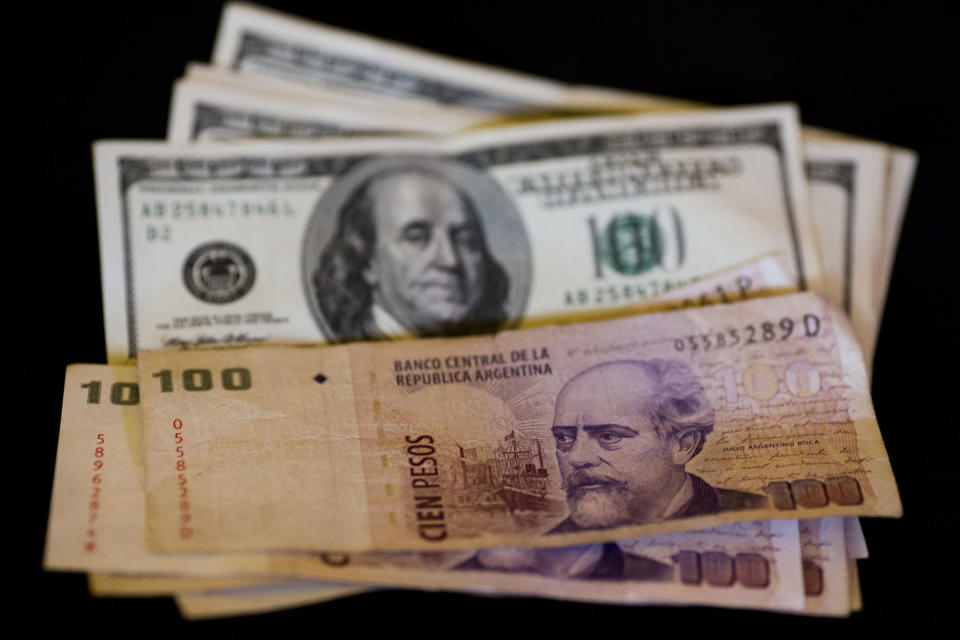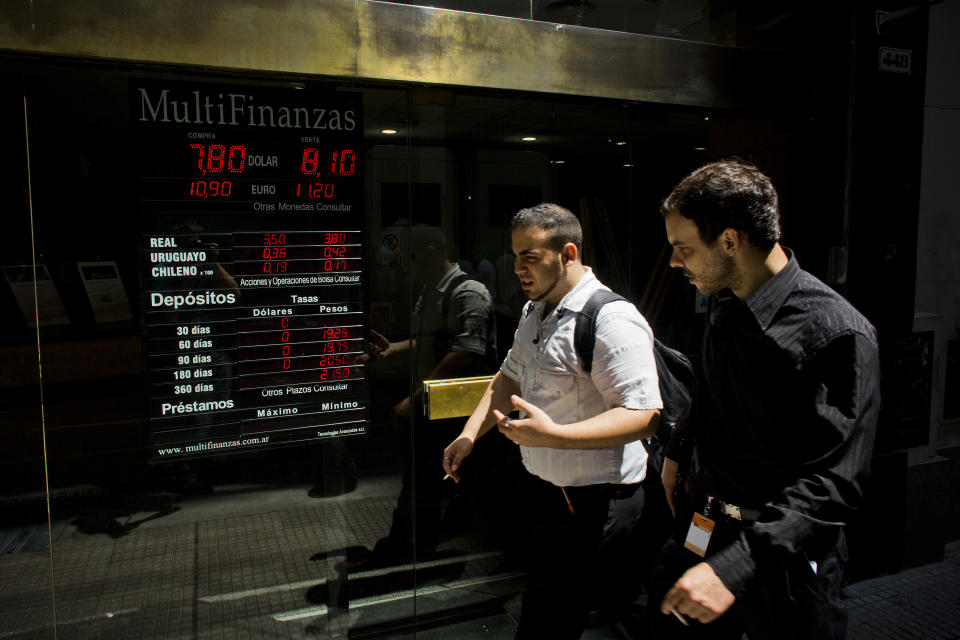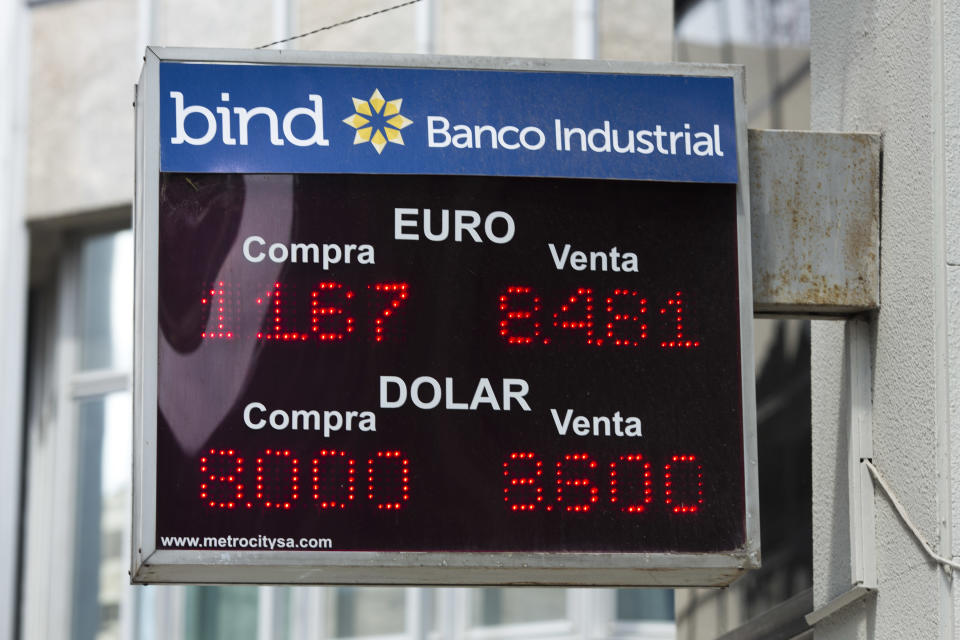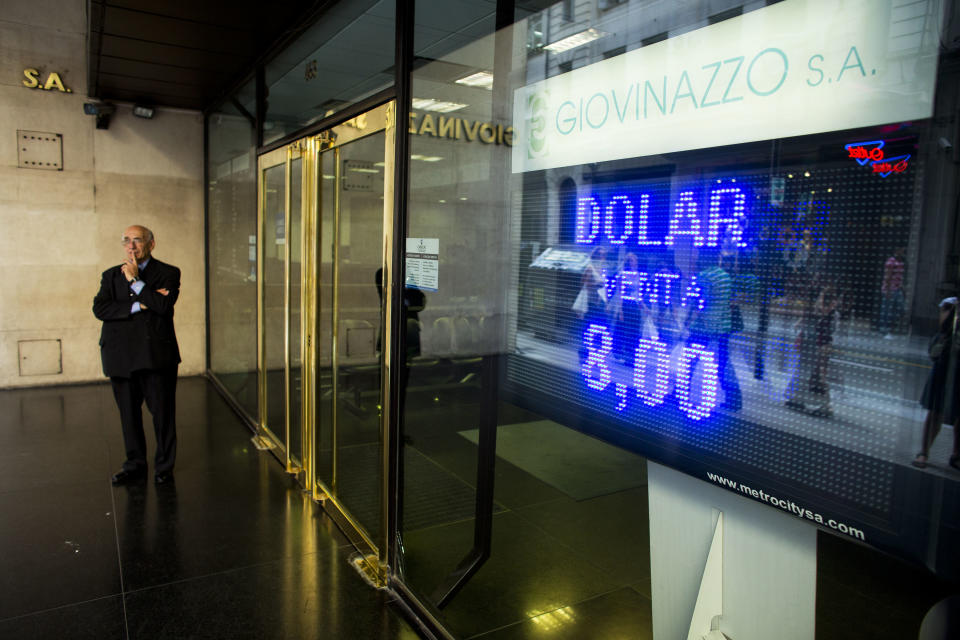Argentina peso suffers steepest drop since 2002
BUENOS AIRES, Argentina (AP) — The peso is suffering its fastest fall since Argentina's 2002 economic collapse as dwindling reserves keep the Central Bank from trying to prop up the currency by intervening in the foreign exchange market.
The 16 percent loss in the peso's official value against the dollar over Wednesday and Thursday could worsen the country's inflation, which is among the worst in Latin America, analysts said.
The peso fell from 6.88 per dollar on Tuesday to 7.14 on Wednesday. By Thursday's close, it was at 8 to the dollar. On the black market, where Argentina's currency is even weaker, the peso dropped 6 percent Thursday to 13 per dollar.
The sharp depreciation is likely due to a new government strategy of seeking a sudden devaluation instead of a gradual one, said Juan Pablo Ronderos of economic consulting firm abeceb.com.
"There was a first sign of this change on Tuesday because the Central Bank didn't show up (to intervene) until midday, and on Wednesday and today it just disappeared from the market," Ronderos said. "The gradual devaluation wasn't working because the Central Bank kept on sacrificing lots of its reserves and it kept on being reflected on consumer prices."
Analysts expect Argentina's inflation to reach more than 30 percent this year, the second highest rate in Latin America after Venezuela.
"The sharp drop will aggravate inflation, although the impact may be mitigated by the fact that some imports will already be purchased at the much weaker black market exchange rate," Neil Shearing, chief emerging market economist at Capital Economics in London, said in a research note.
"The bigger picture, though, is that the economic mismanagement of the past decade has once again pushed the country to the brink of a balance of payments crisis," Shearing wrote.
Critics of the left-leaning government blame economic problems on its higher spending on social programs, expansion of business regulation and nationalization of some companies.
Argentina has been kept from global credit markets since defaulting on its debt during its 2001-2002 financial crisis. So officials have been trying to keep dollars in the country for the Central Bank to use to pay off government debts.
But the bank's reserves have plunged to $29 billion, the lowest level in more than seven years despite increasingly restrictive currency controls meant to stem capital flight.
The controls make it nearly impossible to legally trade pesos for dollars, but many Argentines have turned to black market money changers to obtain dollars.
Many in the country are haunted by memories of the financial crisis, when banks froze deposits and the currency lost value, and they want dollars to keep in emergency stashes.





